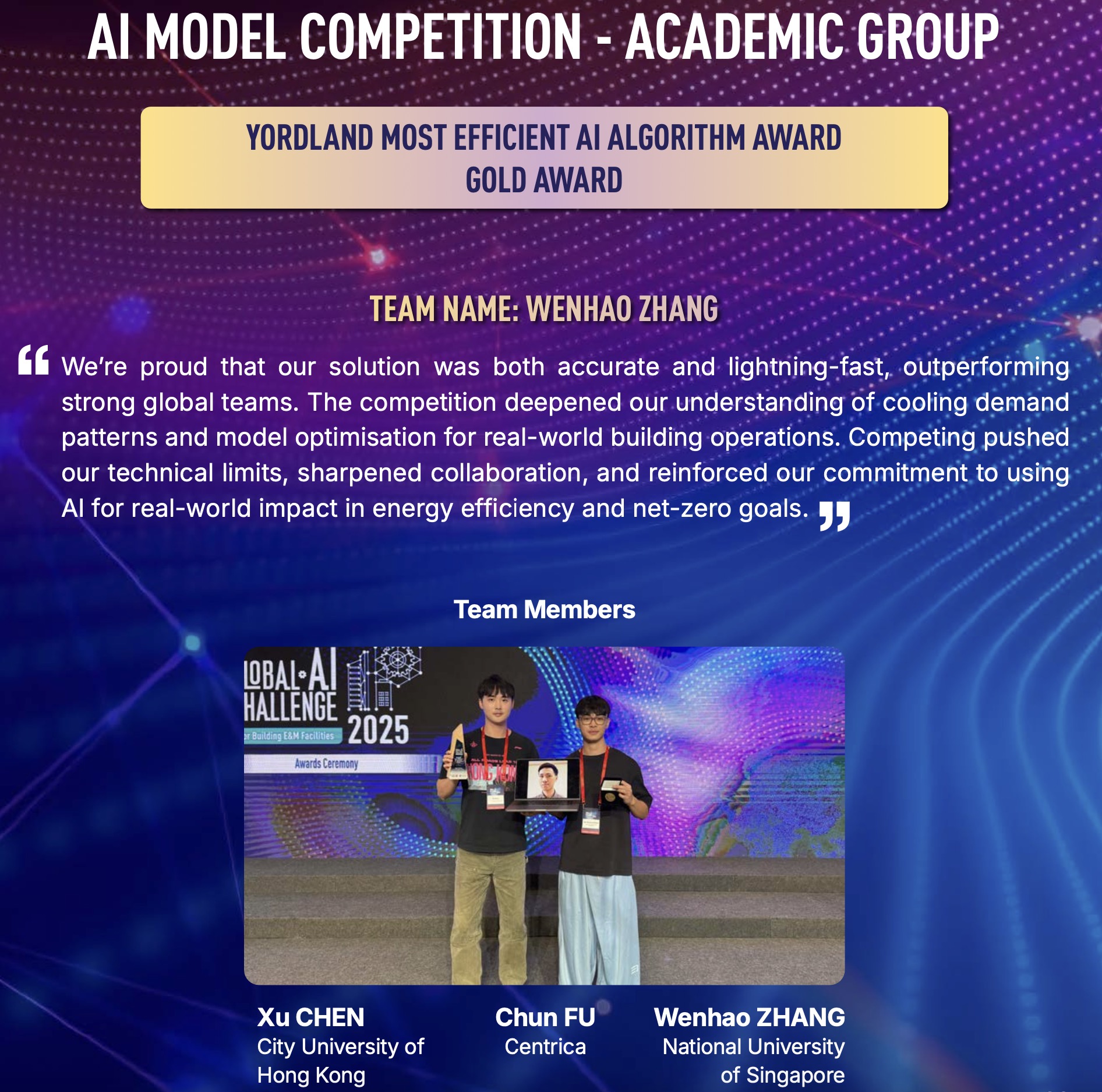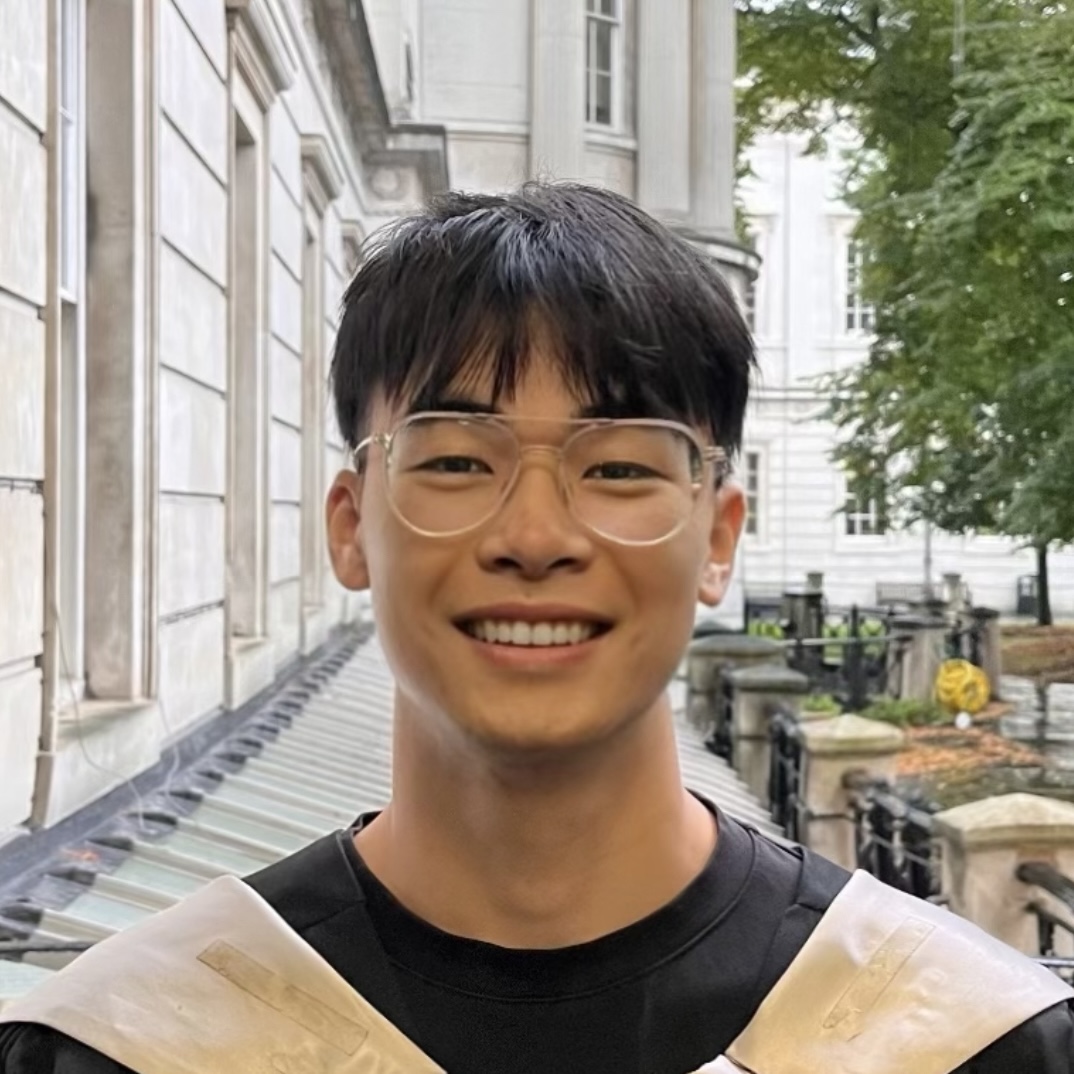Global AI Challenge 2025 – Double Victory for Wenhao Zhang and Team
Published:
Wenhao Zhang and his teammates achieved a double victory at the Global AI Challenge 2025, winning both the Gold Medal and the Most Efficient AI Algorithm Award.

The Global AI Challenge for Building E&M Facilities is recognized as the world’s first and largest AI event dedicated to building electrical and mechanical services. The Challenge brings together researchers, students, AI specialists, start-ups, and corporations from across the globe to compete, collaborate, and showcase innovative solutions. With a strong focus on advancing technologies for building services, it serves as a platform to foster collaboration and generate breakthroughs in the electrical and mechanical sector.
In the 2025 edition, Wenhao Zhang, together with his teammates Chun Fu and Xu Chen, achieved remarkable success in the competition’s cooling demand prediction challenge for commercial buildings. Their team secured the Gold Medal by attaining the highest prediction accuracy among competing groups worldwide. This recognition reflects the robustness of their modeling approach and their ability to capture the complex dynamics of building cooling demand.
In addition to the Gold Medal, the team also received the Most Efficient AI Algorithm Award. This honor highlighted the computational speed and efficiency of their solution, demonstrating that advanced machine learning techniques can be both precise and resource-efficient. Winning both awards underscored the versatility of their approach and set their entry apart from other strong contenders in the competition.
The solution developed by Wenhao Zhang and his teammates was grounded in a series of innovative technical strategies. They implemented Time-of-Week (TOW) daily load modeling to identify and leverage stable operational patterns in building systems. LightGBM gradient boosting was employed to capture complex environmental effects influencing cooling demand. To enhance adaptability, the team incorporated building-specific weighting mechanisms, allowing the model to adjust effectively to varying building characteristics. This integration of accuracy and adaptability resulted in a solution that outperformed competitors on both public and private leaderboards hosted on Kaggle.
As a result of their double victory, the team received a total prize of USD 10,000, comprising USD 5,000 for each award. Beyond the financial reward, their achievement demonstrates the practical potential of AI in addressing pressing sustainability challenges. By enabling more accurate prediction of cooling loads, their work contributes to better HVAC control, reduced operational costs, and progress toward net-zero energy goals in the built environment.
Linkedin Post: Global AI Challenge 2025 – Double Victory in Hong Kong
